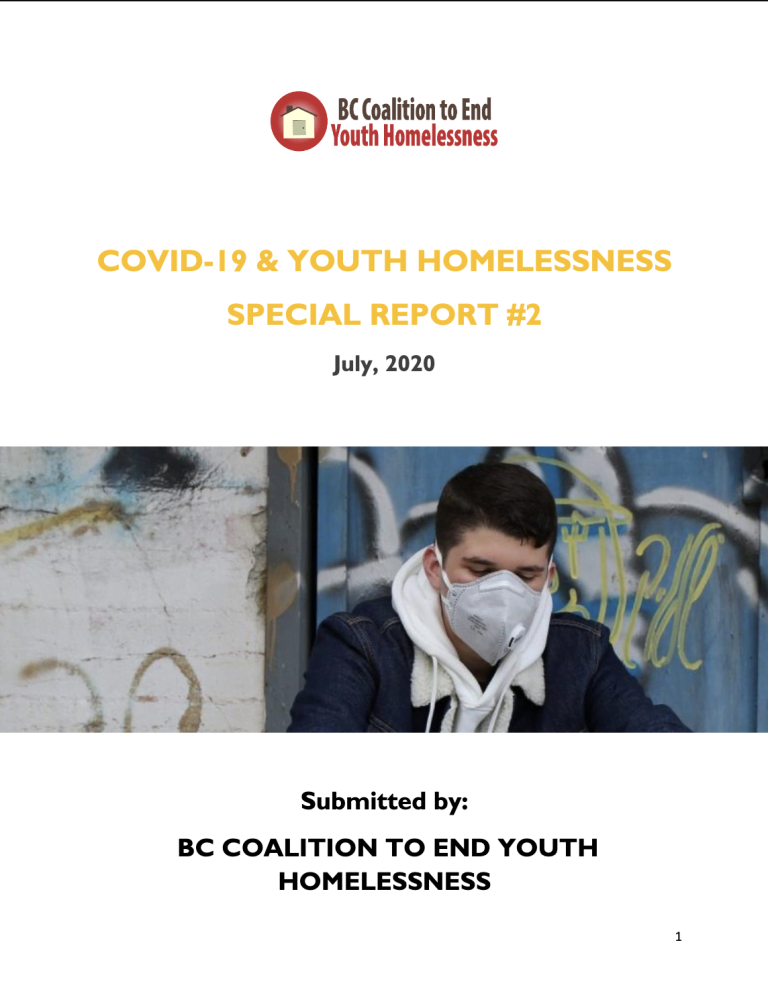Search the Baseline Project
To search the recommendations database, please visit the database main page.
To search the recommendations database, please visit the database main page.

The B.C. Coalition to End Youth Homelessness published its second Special Report on COVID-19 and youth homelessness in July 2020. The report recommends unique, youth-centred ways to increase income levels for youth at risk of homelessness and the development of a BC Youth Housing Action Plan that provides a continuum of housing and access to rental subsidies. The report also recommends increasing youth safety and security online to mitigate risks of exploitation and online bullying.